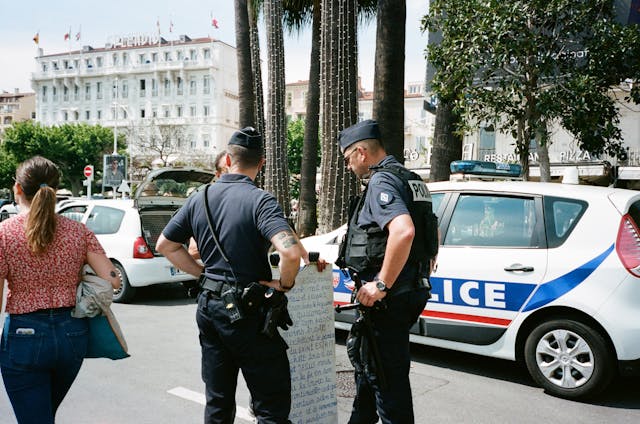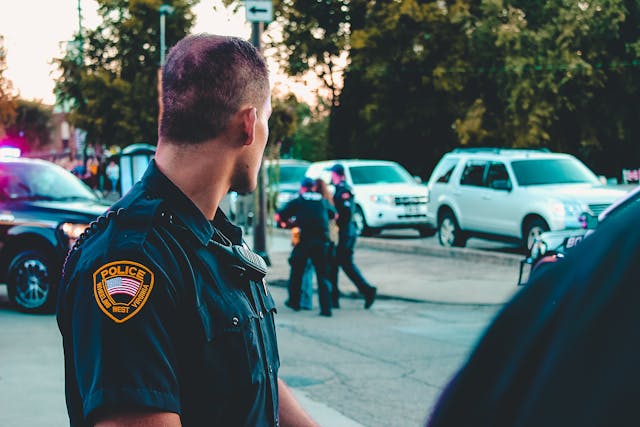Navigating traffic laws can be a daunting task, especially if you’re uncertain about your rights and obligations during a routine traffic stop. If you live in New Jersey or are planning to visit, understanding ‘Stop and ID’ laws can provide you with the necessary knowledge to protect your rights and ensure a smooth interaction with law enforcement. In this comprehensive guide, we’ll cover what it means to be a ‘Stop and ID’ state, how it affects you as a driver, and what steps you should take to stay informed and secure during any traffic stop.
Understanding ‘Stop and ID’ Laws
At its core, a ‘Stop and ID’ law gives police officers the authority to stop a person briefly and request their identification. The person is not required to have committed a crime or be suspected of committing any crime—simply having interactions with the police can trigger the law’s enforcement. These laws are in place to aid in investigating unlawful or suspicious activities and aim to maintain public safety.
New Jersey’s Stop and ID Laws
New Jersey, along with 25 other states and the District of Columbia, has a ‘Stop and ID’ law. In New Jersey, specifically, a person may be stopped and asked to provide identification during a ‘reasonable’ traffic stop. It’s important to understand what constitutes a ‘reasonable’ stop and the consequences of failing to comply with the request for identification.
What Triggers a ‘Reasonable’ Traffic Stop in New Jersey?
A ‘reasonable’ traffic stop in New Jersey can be triggered by several factors, including:
- A vehicle code violation (e.g., speeding, running a red light)
- Mechanical defects on your vehicle
- Situations where the officer has a reasonable suspicion that you’ve been involved in a crime
Know Your Rights
Understanding your rights during a traffic stop is essential. You have the right to:
- Know why you’re being stopped
- Refuse a search of your vehicle without a warrant
- Refrain from answering questions without legal counsel present
What Should You Do When Stopped by the Police in New Jersey?

During a traffic stop, it’s crucial to remain calm and follow these steps:
- Pull over safely: Find a safe location to stop and turn off your engine.
- Stay in your vehicle: Keep your hands on the steering wheel where the officer can see them.
- Cooperate within reason: Provide your license, registration, and insurance upon request.
- Politely ask questions (if you have any): Politely asking for the reason for your stop is within your rights.
- Exercise caution: Be mindful of what you say and do; any sudden movements might be misinterpreted as threatening.
Legal Assistance After the Stop
If you feel your rights have been violated during a traffic stop, you have the right to seek legal counsel. A lawyer can assess the circumstances of the stop and determine if any illegal actions took place.
Strategies for Safe and Legal Driving in New Jersey
To minimize your risk of facing a ‘Stop and ID’ scenario while driving in New Jersey, consider the following strategies:
- Follow all traffic laws
- Regularly maintain your vehicle to avoid mechanical defects
- Keep your identification and insurance in an easily accessible location
Staying Informed and Protected
Knowing the specifics of New Jersey’s traffic laws and your rights during a stop is the best way to ensure you’re prepared and protected in any traffic situation. Stay informed about the current laws and regulations, and be proactive in educating yourself about your rights as a driver.
Do I have to show ID in New Jersey?
In New Jersey, if you’re stopped by law enforcement during a ‘reasonable’ traffic stop, you’re legally obliged to show your identification when requested. This requirement is part of New Jersey’s adherence to ‘Stop and ID’ laws, which aim to facilitate officers in maintaining public safety and investigating suspicious activities. Failing to provide identification upon request can escalate the situation, possibly leading to detention or further legal complications. It’s important for drivers and pedestrians alike to understand that this legal obligation is designed to ensure a cooperative relationship between the public and law enforcement, emphasizing safety and compliance over confrontation.
Is NJ a stop and frisk state?
New Jersey is not defined solely as a “Stop and Frisk” state in the manner that the term is often used to describe practices in some other states. This terminology typically refers to situations where law enforcement officers are given broad discretion to stop individuals on the street and search them for weapons or contraband. However, similar to many jurisdictions, New Jersey law enforcement officers do have the authority to conduct a frisk (a pat-down for weapons) during a stop if they have reasonable suspicion that the person is armed and dangerous. This is in line with the standard set by the U.S. Supreme Court’s decision in Terry v. Ohio. The critical component here is ‘reasonable suspicion’—an officer must have a specific and articulable reason to believe that someone is involved in criminal activity and poses a danger before conducting a frisk.
Can a cop ask a passenger for ID in NJ?
In New Jersey, law enforcement officers have the authority to request identification from passengers during a traffic stop under certain circumstances. This can occur if there’s a reasonable suspicion or probable cause to believe the passenger is involved in criminal activity. While the primary focus of a traffic stop is often the driver, circumstances that arise during the stop can lead to law enforcement interacting with passengers. These situations include, but are not limited to, visible evidence of a crime within the vehicle or behavior that suggests involvement in illegal activities. Passengers, like drivers, have rights, including the right to inquire why their identification is being requested. However, failing to comply with an officer’s lawful request for identification can lead to complications, including detention, until the officer can ascertain the passenger’s identity and any potential threat they might pose.
Do you have to roll your window down for police in NJ?
During a traffic stop in New Jersey, you are required to roll your window down sufficiently to facilitate communication with the police officer and to provide your documents such as driver’s license, registration, and proof of insurance upon request. Although there is no specific law stating how far you must lower your window, it is considered practical and a sign of cooperation to lower it enough to clearly communicate and exchange documents. This action not only aids in the smooth conduct of the traffic stop but also helps ensure both your safety and that of the officer by reducing misunderstandings or perceived non-compliance.
Understanding “Stop and ID” Laws in New Jersey: Unique Insights
New Jersey’s approach to “Stop and ID” laws offers unique insights into how such regulations balance individual rights with public safety. Unlike states with more aggressive stop and frisk policies, New Jersey mandates that law enforcement officers must have a reasonable suspicion of criminal activity to request identification during a traffic stop. This nuanced application emphasizes the importance of specific, articulable facts leading to a stop, rather than broad or indiscriminate practices. Understanding this distinction is crucial for residents and visitors alike, as it informs them of their rights and obligations under the law. Furthermore, this approach aims to foster a cooperative atmosphere between the public and law enforcement, prioritizing safety while respecting individual liberties.
Conclusion
Traffic stops are common, but the details and rights involved can be complex. Whether you’re a long-time resident of New Jersey or a visitor passing through, understanding how ‘Stop and ID’ laws apply to you is crucial. By keeping this information in mind and taking the necessary precautions, you can guarantee a more secure and informed driving experience.



